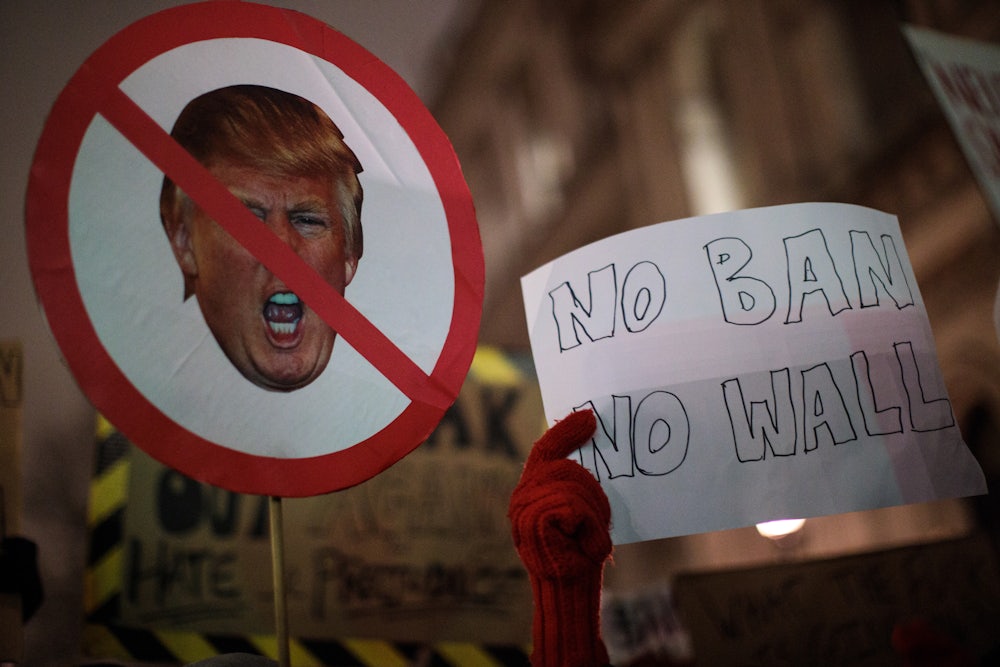Beginning at 8 PM EST, citizens of six predominantly Muslim nations—Libya, Syria, Iran, Sudan, Yemen, and Somalia—will be barred entry to the United States unless they can provide evidence of what the Supreme Court deemed “bona fide relationships” to the United States. While the White House appears to be optimistic about the revised ban’s rollout, it carries many of the same issues that stalled Trump’s initial order months earlier.
For one, the order sets harsh criteria for what relationships are protected as “family ties.” While children-in-law and stepsiblings of American citizens are free to enter, the State Department explicitly refuses to cover cousins, fiancés, and even grandparents. Setting aside the ethical problems of such a delineation, the State Department’s definition of “close family” raises significant legal concerns. Because the Supreme Court was murky on what exactly constitutes a “bona fide relationship” to the United States, American citizens will have grounds to file lawsuits against the administration’s exclusion of certain family members and loved ones.
The State Department has also confusingly assured that all visa applicants from banned nations will be reviewed “case-by-case.” A visa can theoretically be given to someone who cannot prove that they have “bona fide relationships”—a grandparent or uncle, for instance—if it is determined that denying them entry would cause “undue hardship.” At the same time, a visa can be denied to an individual who can prove legitimate business ties to an American entity if officials determine that the relationship was forged simply to side-step the ban.
This reveals the most troubling element of the upcoming travel ban: It leaves a massive discretionary vacuum that will be filled by consular officers and CBP agents. The window for inconsistent enforcement and bureaucratic bungling by officials appears to be substantial. When Trump rolled out his initial attempt at a travel ban months earlier, it failed precisely because it gave undue influence to the whims of individual officials. There’s no reason to believe that won’t happen again.
